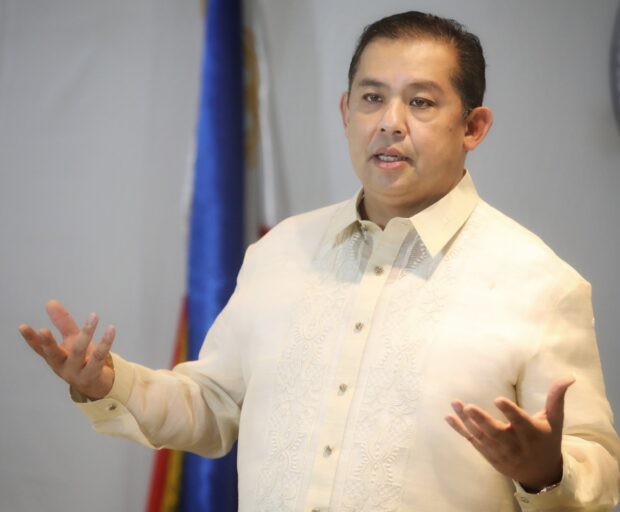
House Speaker Martin Romualdez | PHOTO: Official website of the House of Representatives / congress.gov.ph
MANILA, Philippines — President Ferdinand Marcos Jr.’s decision to increase the buying price of palay for the National Food Authority (NFA) will bode well for farmers whom the government should look after, House Speaker Ferdinand Martin Romualdez said on Tuesday.
In a statement, Romualdez said that the move not only stabilizes the local prices of rice, but also shows the concern of the President towards farmers.
“This shows the malasakit (compassion) our President has towards our farmers who have been working very hard for us to achieve food security. We should always take care of them,” Romualdez said.
“Our farmers have been the ones giving us food on our tables. So, let’s give them the respect that they truly deserve. That is why our President still sits as Agriculture Secretary in a concurrent capacity,” he added.
Marcos on Monday announced that the NFA hiked its buying prices to P19 to P23 per kilogram of dry palay and P16 -P19 per kilogram for wet palay, in a bid to ensure that farmers still earn income despite the present conditions.
This is around P3 to P4 per kilogram higher than the previous prices.
The move comes amid proposals to remove or reduce tariffs on rice importations — which several groups feared would lead to a deluge of imported rice.
While higher supply of rice would push prices down, it will also force farmers to sell grains cheaper to compete with imported rice. Coupled with the President’s Executive Order No. 39 which places a P41 per kilogram price cap on regular-milled and P45 per kilogram well-milled variants, these groups feared that farmers and retailers might no longer earn enough.
READ: Rice imports: Group says PH farmers, consumers both lose
The increase in NFA’s buying price addresses this and helps efforts towards self-sufficiency, Romualdez said.
“The President wants to make sure our local prices are stable, regardless of what happens in the world market. Our priority should be our own. Of course, we prefer our local supply compared to imported rice. We should import only those what we need. Self-sufficiency should be key,” he said.
Ultimately, the House leader admitted that the long-term solution would still involve addressing issues related to production, supply, funding, marketing, infrastructure, irrigation, and technology.
“We must prioritize strengthening the resilience and growth of our farmers. This means investing significantly in them by providing them advanced training, the latest technology, and modern infrastructure, all of which can uplift our farming community and make them more competitive with enhanced yields,” Romualdez said.
“Furthermore, providing accessible financial schemes, such as low-interest loans and grants, can empower our farmers to innovate and scale up their operations. Facilitating direct market access, eliminating the middlemen, ensures that our farmers receive better prices for their produce while consumers benefit from affordability,” he added.